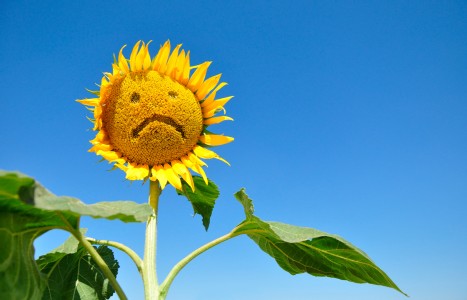Did any of you ever get the feeling in school that it simply was not OK to speak about wanting to be successful? To get into the nitty gritty details of how to make money in practice? Maybe you were even someone like me who was directly told by someone in a position of power that I needed to take what I could get because in private practice, I wouldn’t make money.
Researchers to Study Acupuncture for Low Back Pain
Low back pain affects as much as 80% of the adult population in the United States. As many as half of all adult Americans experience back pain in a given year, and back-related symptoms are one of the leading reasons for patient visits to emergency rooms, hospital outpatient departments and physician's offices.1,2
A variety of factors can lead to low back pain. One of the most common is osteoarthritis, a degenerative condition that causes joint cartilage to break down, resulting in severe joint pain and stiffness. Most commonly seen in the weight-bearing joints of the hips, knees and spine, osteoarthritis is particularly prevalent in older Americans. In fact, according to the Life Extension Foundation, approximately 75% of all Americans over age 50 have some form of the disease.3
Various treatment options have been proposed to provide relief of symptoms, including rest, exercise, and non-steroidal anti-inflammatory drugs. Unfortunately, few of them are completely effective, and some produce side-effects more troublesome than the condition itself.
One type of therapy that appears to offer some hope to patients is acupuncture. Researchers from the University of Pittsburgh Medical Center (UPMC) are currently recruiting patients for a six-week pain management study to see whether acupuncture can ease lower back pain caused by osteoarthritis.4,5
"This (study) represents the first well-controlled, comprehensive examination of an alternative medicine intervention for low back pain in older adults," said Dr. Debra K. Weiner, director of UPMC's Older Adult Pain Management Program and the study's principal investigator.
The randomized study will include 50 patients over age 65 who have chronic pain caused by lumbosacral osteoarthritis. During the treatment, half of the participants will receive physical therapy plus percutaneous electrical nerve stimulation (PENS), a procedure that involves inserting acupuncture needles into specific points in the lower back and hips and then stimulating them with a mild electric current.
"The idea is that electricity will enhance the effects of the acupuncture," said Dr. Ronald Glick, a co-investigator and licensed acupuncturist who will perform the procedure. "The electrical stimulation is at a level that will give the patient a mild tingling sensation, but no pain."
The rest of the patients will receive physical therapy plus acupuncture, but without electrical stimulation. Both groups will be treated twice a week for six weeks. At the end of the study, Weiner and Glick will compare the effectiveness of the two procedures. Participants will also be reassessed three months after treatment.
In addition to the reduction of pain, the researchers will also examine the effects of acupuncture on the subject's physical performance, mood and quality of life. According to Dr. Weiner, chronic pain can lead to other problems that compound a patient's suffering.
"People with chronic pain may feel fatigued all the time," she explained. "They may have trouble sleeping and/or thinking. Other studies show that the more intense the pain, the shorter a person's attention span."
Glick and Weiner hope that their research will not only bring relief to millions of back pain sufferers, but could also bring credibility to a therapy that is not traditionally covered by insurance plans.
"More than 80 percent of elderly people go to their doctors about pain, but they don't always get the right help," said Dr. Weiner. "We'd like to see this change."
References
- Liebenson CS. Pathogenesis of chronic back pain. J Manip Physiol Ther 1992;15:299-308.
- Nordin M, Weiser S, Halpern N. Education: the prevention and treatment of low back disorders. In: Frymoyer JW (ed.) The Adult Spine and Practice. New York: Raven Press, 1991, pp. 1641-54.
- Information available from the Life Extension Foundation's website (www.lef.org).
- University of Pittsburgh to study electrified acupuncture as treatment for back pain. Available from the UPMC's website (www.upmc.edu).
- Weisberg D. Acupuncture's benefits for back pain in older adults to be studied. Pittsburgh Post-Gazette February 15, 2000.


